Death is built into our cityscapes
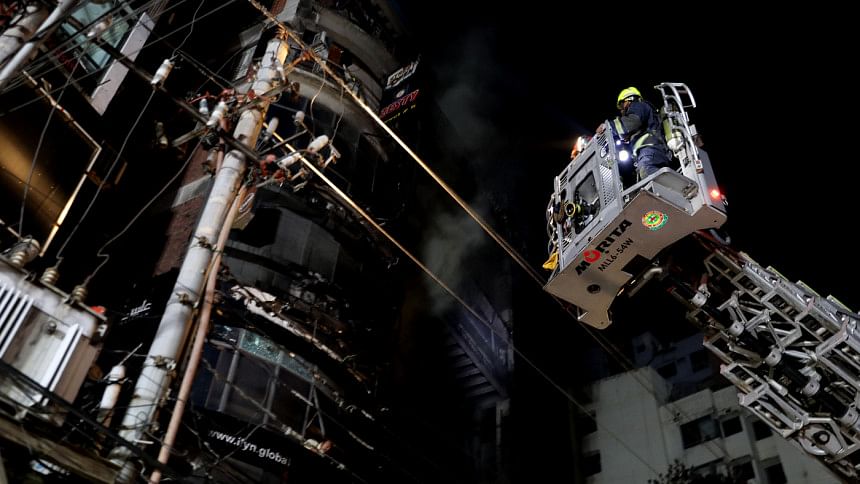
I am not a morbid person, in general. But, increasingly, I find myself spending an unhealthy amount of time obsessing over what sort of a death awaits me in Dhaka. Will I die in a fire while shopping in my go-to kitchen markets or while having french fries with my toddler at a nearby cafe? Will it be an earthquake of the magnitude that hit Morocco or Turkey last year, with us trapped in the ruins of Dhaka's unplanned development for days on end till we are released permanently from the burden of being its residents? Perhaps, if we are lucky, it will be a quick run-of-the-mill road crash. Or something far less glamorous, like a slab from an unguarded construction site as we are passing by. Or maybe it will be something more topical, like death from dengue, with women in my age group reportedly being the most vulnerable to untimely demise. Or something classic, like air pollution, which is guaranteed to reduce at least eight years of our lives.
It certainly isn't normal to go through life paralysed by vivid premonitions of impending deaths. Yet, I can't help but wonder how normal it is for Dhakaites (or residents of any major city in the country) to go through life taking such risks for granted. Why have we accepted this deadly state of affairs as inevitable?
For all the development projects taking place in and around the capital that will supposedly propel us into the future, our lives—at least for the overwhelming majority—remain as precarious as ever. Except for a handful, none of the high-rise buildings of the capital follow building and safety codes. A recent report confirmed what we have known in our gut all along—that we are essentially gambling with our lives every time we frequent those tall commercial buildings housing our favourite burger or kachchi joints. Many of these buildings, tantalising us with their flashy signs, and promises of fusion menus and Instagrammable decors, lack emergency exits, while others store LNG cylinders and large boxes on both the main stairwells and the emergency exits blocking any possibility of an exit during a fire. LNG cylinders and combustible materials on almost all floors of the building, without adequate fire safety equipment or training of those working as staff, mean that any small accident can flare into a fire of tragic proportions at any moment. And it isn't just these commercial buildings, of course. It's also hospitals, schools, kitchen markets, shopping malls—the list goes on—which do not have even the most basic of safety protocols in place.
An overwhelming majority of these structures will also not stand a severe earthquake: our cities will turn into living graveyards within seconds. In our frenzied rush for urbanisation, we have ravenously consumed wetlands and landfills, without anyone factoring in the geological features or vulnerabilities, building high-rises defying land use guidelines or building codes. We can cite stats all we want, but the simple and terrifying truth is that death is built into the very foundations of our cityscapes.
Life goes on in the metropolis, with us living the same nightmares and risks day in and day out, with topical outbreaks of outrage when a relevant news item grabs the headlines. But in the end, nothing changes; what's worse is that we all know—and have somehow accepted—that nothing will change.
Sure, a case has been filed against Amin Mohammad Group, owner of the building housing the Green Cozy Cottage shopping mall on Bailey Road, Anwarul Haque, owner of Chumuk fast food, Munshi Hamimul Alam Bipul, the building's manager, and Shoel Siraj, owner of Kacchi Bhai for causing death by negligence and attempted murder. But if the past is any indication, those arrested can rest assured that they will soon be released on bail and no conviction will take place in the near future, if ever.
Twenty-three years have passed since 124 people were killed in a preventable fire in Old Dhaka's Nimtoli area, but beyond filing a GD with the police station, no investigation was ever conducted for what ought to have been a case of culpable homicide. The owners of Tazreen Fashion, who blocked the stairwells and locked the gates of the factory once the fire started, roam around freely, enjoying the fruits of their bloody profits, 14 years since the fire at their factory killed at least 117 people. Of the 46 hearings fixed to collect testimonies of witnesses between 2015 and 2022, the state was able to produce witnesses only nine times. There has been no progress on the case since then. Meanwhile it took a whopping five years for the Police Bureau of Investigation (PBI) to simply submit their charge sheets against those implicated in the fire at FR Tower in Banani. It is the same infuriating story for every major fire incident in the country over the past two decades. This, too, we all know—that when power, money and might is involved, justice can be conveniently delayed, infinitely, if necessary.
The city authorities, those tasked with ensuring our safety, meanwhile, have devised a brilliant strategy of getting out of any responsibility—they simply point the fingers at the myriad other useless authorities that are supposed to ensure our basic amenities. As you go through the list of regulatory bodies and service providers, asking them why they have failed so miserably at doing the bare minimum, you ultimately realise you are stuck in an endless loop of self-serving hogwash. So we give up. What else can we do? When there is no accountability at even the highest levels of state governance, when might and money reign over human lives and rights, when perpetrators can buy their way out of the most egregious of violations and violences, where do you even start? We can call upon the authorities all we want in the editorial pages of our newspapers to see reason, to stop this unplanned and unmonitored madness, but in the end, how many, if any, listen to us?
It is the sheer helplessness of our situation that consumes and in the end defeats most of us. There's really only two paths we can take from here. One is the path we always take. Escape in mindless social media reels and the day-to-day drudgery of our inflation-ridden lives in an attempt to forget the spectre of arson or some "accident" looming over our heads, until the next tragedy strikes. The other is a far more daunting task: that of challenging the state and its apparatuses and demanding that they prioritise the people of this country over the short-term gains of corrupt officials and businessmen.
Our policymakers need to realise that the current development model, with its shining highways and flashy billboards, on which they have been feeding their limitless greed for the past decade, cannot hide the gaping holes in its very foundation. They might be the ones running the country, but they do not have the right to gamble with our lives.
Sushmita S Preetha is op-ed editor at The Daily Star.
Views expressed in this article are the author's own.
Follow The Daily Star Opinion on Facebook for the latest opinions, commentaries and analyses by experts and professionals. To contribute your article or letter to The Daily Star Opinion, see our guidelines for submission.

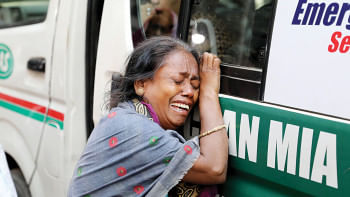
 For all latest news, follow The Daily Star's Google News channel.
For all latest news, follow The Daily Star's Google News channel. 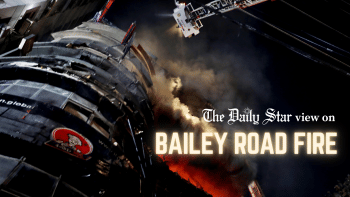


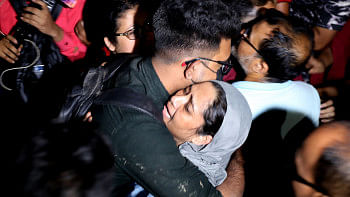
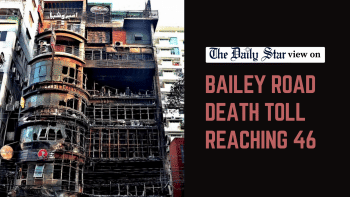


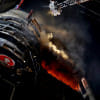
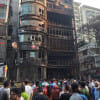
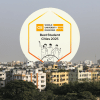




Comments